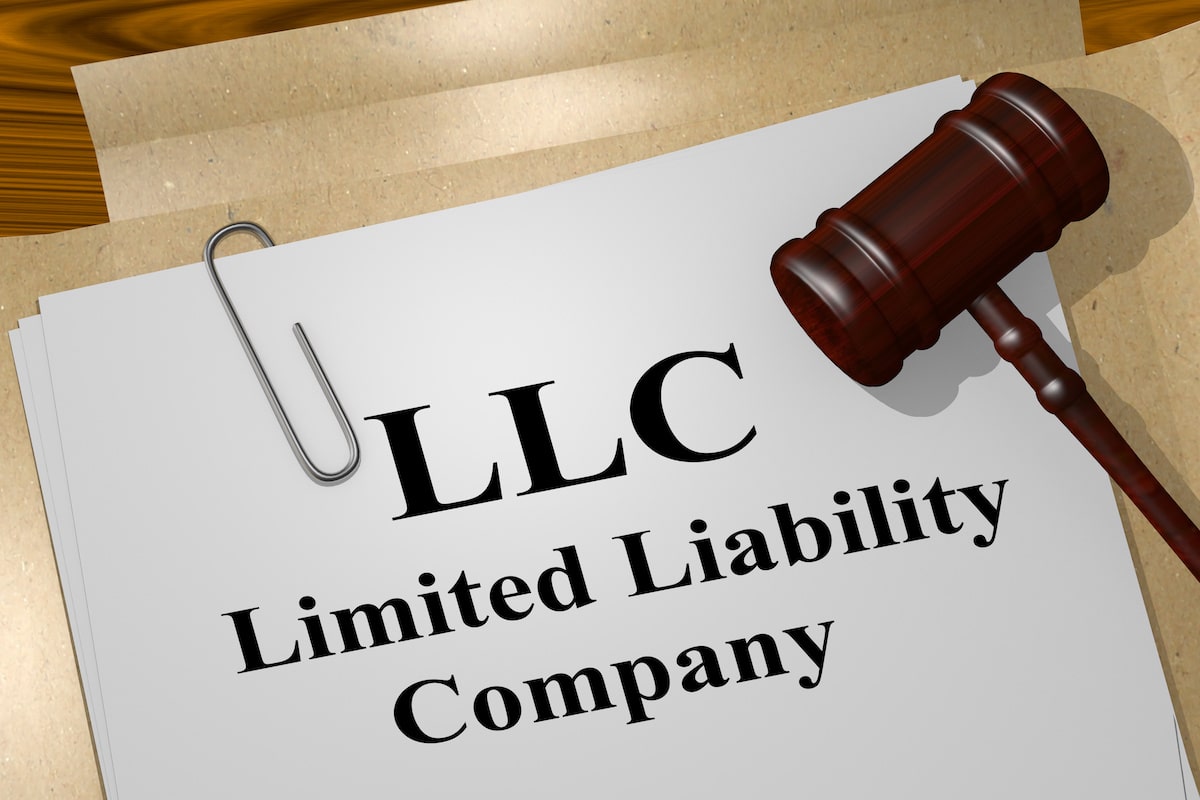Advantage of Forming a Limited Liability Company (LLC)
As an entrepreneur, it is crucial for you to consider the advantages of forming a Limited Liability Company (LLC) for your business. With an LLC, you can benefit from personal asset protection, tax flexibility, and a more simplified business structure. As you establish your business, carefully weighing the pros and cons of an LLC can empower you to make prudent legal and financial decisions that set your company up for success. Understanding the key benefits, such as liability protection and pass-through taxation, allows you to develop a strategic vision for how an LLC may help you achieve both short-term and long-term goals. Taking time to research how an LLC may suit your specific business needs can pay dividends in the future.
What Is a Limited Liability Company (LLC)?

3D illustration of LLC title on legal document. Limited Liability Company.
A limited liability company (LLC) is a business structure that offers the liability protection of a corporation and the tax benefits and flexibility of a partnership. An LLC provides limited liability to its owners by separating their personal assets from the business’s liabilities and debts.
To form an LLC, you must file articles of organization with your state, which typically involves paying a filing fee. The members of an LLC can operate it themselves or hire managers to run the business. An LLC is a separate legal entity from its members and managers. It can own property, sue or be sued, and is responsible for its own debts and liabilities.
The profits and losses of an LLC can pass through to its owners’ personal tax returns, avoiding the double taxation of corporations. The members of an LLC report business income and losses on their personal tax returns, while the LLC itself does not pay income tax. Members can take advantage of business tax deductions and credits to offset their share of the LLC’s taxable income.
An LLC offers more flexibility than a corporation. It has fewer regulations and fewer administrative requirements. Members can divide profits and ownership interests according to their agreement. The operating agreement establishes the ownership, structure, and rules of the LLC. Members can amend the agreement as needed to adapt to business changes.
In summary, forming an LLC allows you to gain the legal protections of a corporation while enjoying the tax and flexibility benefits of a partnership. The LLC structure is ideal for small businesses looking for liability protection and pass-through taxation. By understanding the advantages and responsibilities of an LLC, you can determine if it is the right choice for your business.
Top 5 Advantages of Forming an LLC
Forming a Limited Liability Company (LLC) offers several advantages over other business structures. As an LLC owner, you can enjoy the following benefits:
1. Limited Personal Liability
As the name suggests, an LLC limits the personal liability of its owners. The company is a separate legal entity, so the owners are typically not personally responsible for business debts and liabilities. Their personal assets are shielded, even if the business goes bankrupt. Creditors can usually only go after the LLC’s assets.
2. Flexibility and Simplicity
An LLC is simpler to form and operate than a corporation. There are fewer regulations and less paperwork. LLCs also have more flexibility in how they are organized and run. Owners have options in how the business is managed and income/losses are distributed. LLCs can be member-managed like a partnership, or manager-managed like a corporation.
3. Tax Flexibility
LLCs are considered “pass-through” entities for tax purposes, meaning the business income passes through to the owners who report it on their personal tax returns. Owners can choose whether to be taxed as a sole proprietor, partnership, or corporation. They can switch their tax classification if needed. This flexibility allows owners to choose the tax treatment that is most beneficial for their situation.
4. Ownership Flexibility
An LLC allows for a flexible ownership structure. Multiple owners (members) are allowed, and different membership interests can be issued. LLCs can have voting and non-voting members, and membership shares can be transferred freely or restricted, depending on the operating agreement. This flexibility in ownership and control makes the LLC an appealing choice for many businesses.
5. Fewer Compliance Requirements
Compared to a corporation, an LLC has fewer regulations and compliance requirements to follow regarding ownership, operation, and financial reporting. There are fewer administrative duties, like fewer required annual meetings and less paperwork to file. This can save the owners a considerable amount of time and money.
In summary, forming an LLC offers many advantages for a business, including limited liability, flexibility, simplicity, and tax benefits. For these reasons, an LLC can be an excellent choice of entity for your company.
Need help forming your LLC? Contact us today! Book online here or call our office number at 760-754-9059.




0 Comments